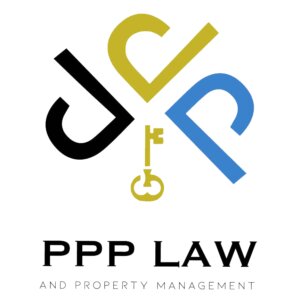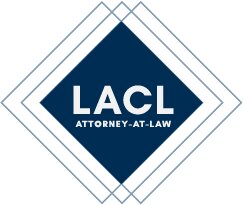Best Admiralty & Maritime Lawyers in Huai Khwang
Share your needs with us, get contacted by law firms.
Free. Takes 2 min.
List of the best lawyers in Huai Khwang, Thailand
About Admiralty & Maritime Law in Huai Khwang, Thailand
Admiralty and maritime law is a specialized area of law that governs activities, transactions, and disputes related to navigation and commerce on the sea and other navigable waters. In Thailand, this field covers issues such as shipping, marine commerce, vessel ownership, maritime insurance, and environmental regulations affecting waterways. Although Huai Khwang is a district in Bangkok, away from the coastline, its role as a commercial and logistical hub means that maritime law can still have significant relevance for businesses, freight forwarders, and individuals with interests in shipping or trade.
Why You May Need a Lawyer
There are many situations where obtaining legal assistance in the field of admiralty and maritime law becomes essential. These can include resolving disputes over shipping contracts, handling cargo claims and marine insurance matters, addressing vessel arrests or detentions, managing shipping accidents or environmental issues, and dealing with customs or regulatory compliance for imported and exported goods. Both businesses and individuals may also require help with vessel registration, licensing, and understanding their legal responsibilities as shipowners, operators, or trading companies dealing in goods that are transported by sea.
Local Laws Overview
Thailand's admiralty and maritime law framework consists of both domestic laws and international conventions to which the country is a party. Key statutes include the Thai Navigation in Thai Waters Act, the Carriage of Goods by Sea Act, and the Civil and Commercial Code provisions relating to transportation. The Marine Department is the principal regulatory authority overseeing vessel registration, safety standards, and licensing. While Huai Khwang itself does not have coastline access, companies and individuals based here must comply with national laws when engaging in maritime-related business, including customs regulations and dispute resolution mechanisms that often reside in Bangkok's courts.
Frequently Asked Questions
What is admiralty and maritime law?
Admiralty and maritime law covers legal issues arising out of navigation and commerce on navigable waters. In Thailand, this includes shipping, marine insurance, and other maritime business activities.
Do I need a maritime lawyer even if my business is not near the sea?
Yes. Many businesses in inland Bangkok districts like Huai Khwang deal with shipping companies, imports, and exports. Maritime law often applies to these transactions regardless of physical proximity to the coast.
What are the common legal disputes in this field?
Common disputes include breach of shipping contracts, cargo loss or damage claims, marine insurance disputes, vessel arrests, and regulatory compliance issues.
How is vessel ownership registered in Thailand?
Vessel ownership is registered with the Marine Department of Thailand, which sets out requirements for documentation, inspections, and the legal process for registration.
Are foreign-owned vessels allowed to operate under the Thai flag?
Thailand has specific rules regarding foreign vessel registration and operation. Generally, foreign ownership is restricted, but exceptions and joint-venture arrangements may be possible with special permission.
What happens if my cargo is damaged during transit?
You may have a claim under the Carriage of Goods by Sea Act or marine insurance policy. A maritime lawyer can help you navigate the claims process and negotiate with insurers or carriers.
Which governmental agency handles shipping regulations?
The Marine Department regulates shipping, vessel registration, safety, and licensing in Thailand. Certain aspects also fall under the jurisdiction of the Customs Department for imports and exports.
How are maritime disputes resolved in Thailand?
Most maritime disputes are resolved through civil courts in Bangkok, often with specialized judicial divisions for commercial and maritime cases. Arbitration can also be an option if agreed by the parties.
What international conventions has Thailand ratified in maritime law?
Thailand is a party to several international maritime conventions, including those relating to safety at sea, pollution prevention, and carriage of goods by sea, which become enforceable under domestic law.
Is environmental law relevant in maritime activity in Huai Khwang?
Yes. Even inland businesses must comply with environmental laws relating to the transport and handling of hazardous goods, especially when these goods are shipped or received through sea routes.
Additional Resources
For further information and support, consider consulting the following organizations and governmental bodies:
- Thailand Marine Department - Oversees vessel registration, licensing, and maritime safety
- Department of International Trade Promotion - Provides guidance on shipping regulations and export-import guidelines
- Bangkok Civil Court - Handles maritime and commercial litigation
- Thai Shipowners Association - Offers resources and assistance for shipping companies
- Legal aid clinics and local bar associations for referrals to specialized maritime lawyers
Next Steps
If you require legal assistance in admiralty and maritime law in Huai Khwang, Thailand, start by identifying the specific legal issue you are facing. Gather all relevant documents such as contracts, correspondence, and any evidence related to your case. Reach out to a qualified lawyer with experience in maritime law for a confidential consultation. You may contact local law firms specializing in transportation and international trade or seek referrals from the Thai Bar Association. It is important to act swiftly in maritime matters as they often involve strict legal timeframes. Consulting a legal professional will help clarify your rights and options, guiding you toward a proper resolution.
Lawzana helps you find the best lawyers and law firms in Huai Khwang through a curated and pre-screened list of qualified legal professionals. Our platform offers rankings and detailed profiles of attorneys and law firms, allowing you to compare based on practice areas, including Admiralty & Maritime, experience, and client feedback.
Each profile includes a description of the firm's areas of practice, client reviews, team members and partners, year of establishment, spoken languages, office locations, contact information, social media presence, and any published articles or resources. Most firms on our platform speak English and are experienced in both local and international legal matters.
Get a quote from top-rated law firms in Huai Khwang, Thailand — quickly, securely, and without unnecessary hassle.
Disclaimer:
The information provided on this page is for general informational purposes only and does not constitute legal advice. While we strive to ensure the accuracy and relevance of the content, legal information may change over time, and interpretations of the law can vary. You should always consult with a qualified legal professional for advice specific to your situation.
We disclaim all liability for actions taken or not taken based on the content of this page. If you believe any information is incorrect or outdated, please contact us, and we will review and update it where appropriate.













